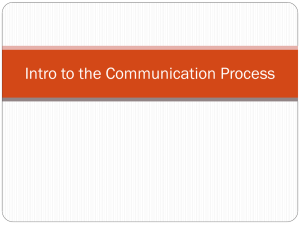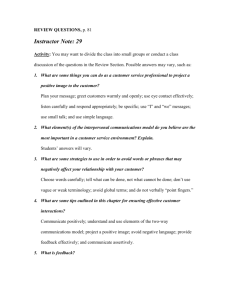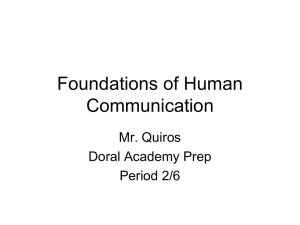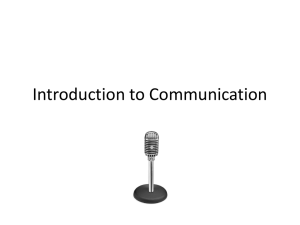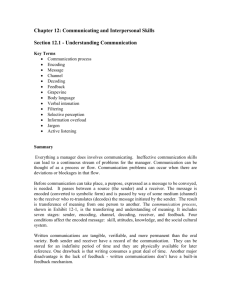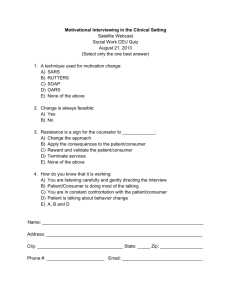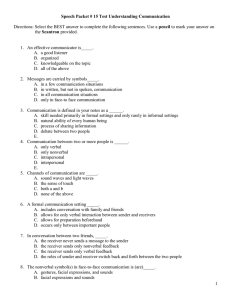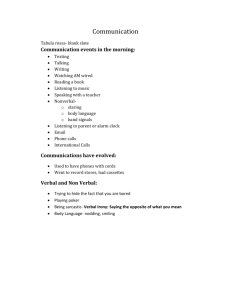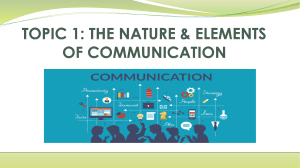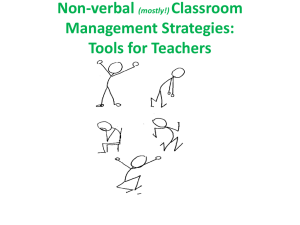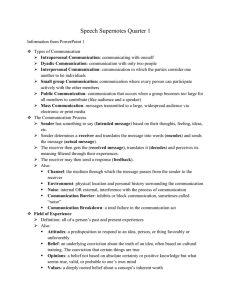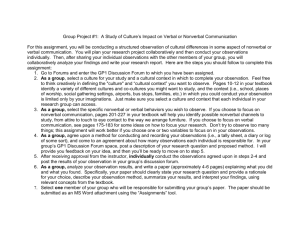communication and interpersonal skills
advertisement
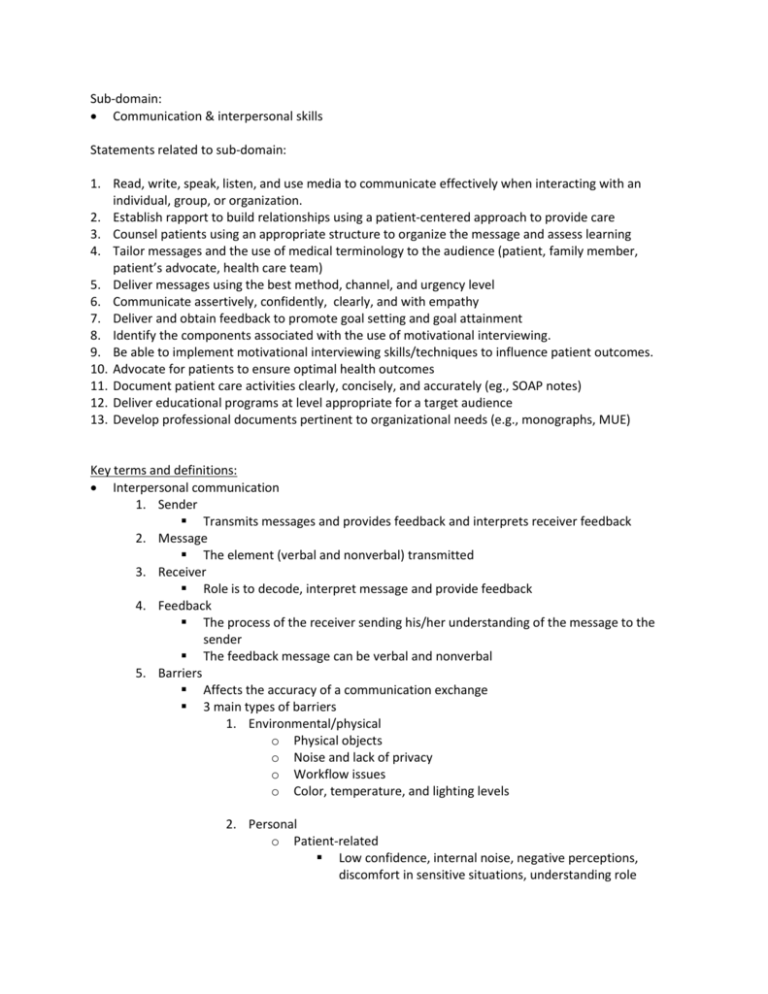
Sub-domain: Communication & interpersonal skills Statements related to sub-domain: 1. Read, write, speak, listen, and use media to communicate effectively when interacting with an individual, group, or organization. 2. Establish rapport to build relationships using a patient-centered approach to provide care 3. Counsel patients using an appropriate structure to organize the message and assess learning 4. Tailor messages and the use of medical terminology to the audience (patient, family member, patient’s advocate, health care team) 5. Deliver messages using the best method, channel, and urgency level 6. Communicate assertively, confidently, clearly, and with empathy 7. Deliver and obtain feedback to promote goal setting and goal attainment 8. Identify the components associated with the use of motivational interviewing. 9. Be able to implement motivational interviewing skills/techniques to influence patient outcomes. 10. Advocate for patients to ensure optimal health outcomes 11. Document patient care activities clearly, concisely, and accurately (eg., SOAP notes) 12. Deliver educational programs at level appropriate for a target audience 13. Develop professional documents pertinent to organizational needs (e.g., monographs, MUE) Key terms and definitions: Interpersonal communication 1. Sender Transmits messages and provides feedback and interprets receiver feedback 2. Message The element (verbal and nonverbal) transmitted 3. Receiver Role is to decode, interpret message and provide feedback 4. Feedback The process of the receiver sending his/her understanding of the message to the sender The feedback message can be verbal and nonverbal 5. Barriers Affects the accuracy of a communication exchange 3 main types of barriers 1. Environmental/physical o Physical objects o Noise and lack of privacy o Workflow issues o Color, temperature, and lighting levels 2. Personal o Patient-related Low confidence, internal noise, negative perceptions, discomfort in sensitive situations, understanding role o Pharmacist-related Information overload and perceptions of health care providers, illness, and what to do when ill 3. Personal space o Intimate, personal, social, and public space zones o Open vs. closed body posture Nonverbal communication o Literal definition is “not with words”, but there is a verbal element of nonverbal communication - how something is said (tone, volume, pauses and hesitations) o 4 types of nonverbal factors 1. Body movements (gestures, open vs. closed body posture, stance) 2. Facial expressions (congruence and incongruence) 3. Eye contact 4. Paralanguage (tone, volume, pauses and hesitations) Motivational interviewing techniques: A collaborative counseling style designed to enhance patients’ internal motivation to make health behavior change. Is client centered and accepting. Employs an empathic, accepting, and eliciting approach. Empathy o Understanding another person’s feelings or point of view o Includes the attitude of wanting to listen and understand people and their point of view o Does not include judging, advising, reassuring, generalizing, probing, or distracting Active listening o When an individual is genuinely interested in understanding what another person is thinking, feeling, or communicating o Actively checks his/her understanding of the sender’s message prior to responding (restating, paraphrasing, asking for clarification or verification) The verification or feedback process is what distinguishes active listening Open vs. close ended questions o Close-ended questions can be answered with “yes” or “no” or very few words e.g. “Has you doctor told you how to take this medication?” o Open-ended questions do not limit a person’s response or cause defensiveness e.g. “How has your doctor told you to take this medication?” References: all definitions adapted from: Tindall WN, Beardsley RS, Kimberlin CL. (2012). Communication skills in pharmacy practice, 6th edition. Philadelphia, PA: Lippincott, Williams, and Wilkins. Motivational Interviewing. Accessed December 2012 http://www.motivationalinterview.org/
